Children running from thunderstorms. The plot, inspired by the materials spetshrana
... That night she saw Comrade Stalin. It was as if she was walking along a pine forest between Staropetrovo and Petyakovo - and suddenly Comrade Stalin approached her and said: “My car is somewhere here, help me find it!” She boldly takes Comrade Stalin by the hand and leads him somewhere, although doesn't really know where. Sometimes she sees black lacquer reflections between the pines and she goes there. But there is no car. Comrade Stalin ashamed of her: “You said that you know the forest, but you cannot find a car in it! Means, deceived? Or do you want to confuse? ”She becomes both ashamed and scared.
Sure, it was a bad dream. And two or three days later, in the last days of January forty-two, Nadezhda Kablukova, a young Russian teacher from Birsk, hailed an unknown man in a commanding overcoat on the street. Walking beside her, as if they were on the way, smiling kindly, he nonetheless spoke in a dry, imperious tone:
- Please go to the Police House on October Street. In your interests ... Today ... You will take the pass from the guard, and left.
Hope did not even have time to answer, of course, only to change clothes and immediately appear where it is said. Then she immediately remembered a strange dream in which she helped Stalin to search for a car.
[left] In the old merchant city of Birsk, evacuees arrived on barges and steamers, they were brought in trucks from the Ufa train station, landed on the square in front of the city executive committee with children, with suitcases and trunks, and then the cars went back to Ufa for new lots refugees.
At the beginning of the war, the Karelian-Finnish Russian drama theater was transferred from Petrozavodsk to Birsk - a huge landing barge of scenery and props, a whole company of dramatic and comedic talents, theatrical diversity and European gloss, with which Birsk had not been in contact before. Soon the city was plastered with posters listing the performances: “Uriel Acosta”, “Anna Karenina”, “Cunning and Love”, “Noble Nest”, “Empress's Conspiracy”, “Thunderstorm”, “Othello”, “Gadfly”, “Platon Krechet ". But especially many Chekhov's plays, the whole city was going to these performances - teachers, doctors, engineers, all the party leaders.
Despite the tragic news from the front and the hard half-starved life, the townspeople went to the theater to forget for two or three hours, and meeting the day after the performance, share with familiar bright smiles, share their impressions of the acting game.
Why did Chekhov's heroes seem so close to them, why did the heart respond with such sadness when Ionci, Ranevsky and Uncle Vanya appeared on the scene? Perhaps, the audience knew about them that Chekhov himself did not know ?! That all of them will enter into the terrible drama of the Civil War: one of the elegant Chekhov women will dress the white dress of the sister of mercy and die in the typhoid barrack, someone will pull on a squeaky leather jacket of the sponge and girdle with a belt, someone will become a white officer and will be shot on the river slopes, someone will pass across Russia on a dusty road in the ranks of the red infantry ...
It was a pity for all these teachers, doctors, officials and telegraph operators, who on the stage were still loved, quarreled, joked, clever, read poems, although they all had their own role in the national tragedy. After the curtain fell, they gave a long standing ovation.
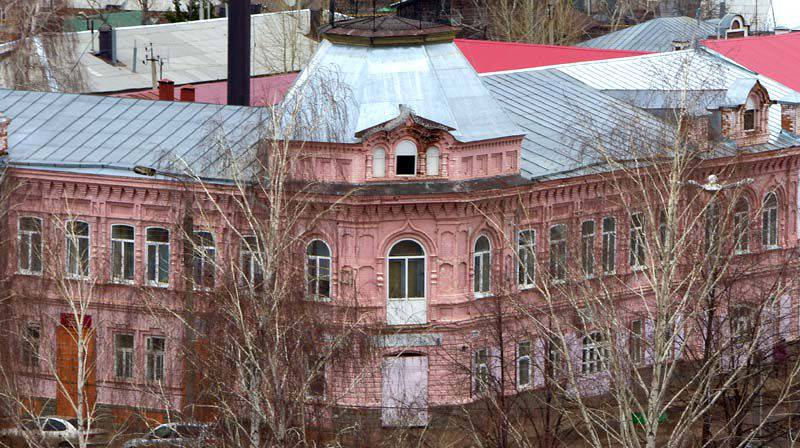
The house of the merchant Ivan Chirkov, in which the Leningrad School of Aerial Monitoring, Alert and Communication was located during the war. Photo by Sergey Sinenko
In August, a military school of air surveillance, warning and communications was evacuated from Leningrad to Birsk. Academic corps school provided in various parts of the city, the cadets from morning to night, went from end to end; and it seemed in the city only the military and live.
It must be said that the future officers of this particular school required an especially acute hearing - the ability at a great distance to determine from sound the number of flying planes, their types, direction and altitude. Therefore, students of Leningrad music schools and conservatories were recruited at the school. Thus, young Leningrad composers Vadim Salmanov, Georgy Rafolovich and Georgy Sviridov were enrolled here.
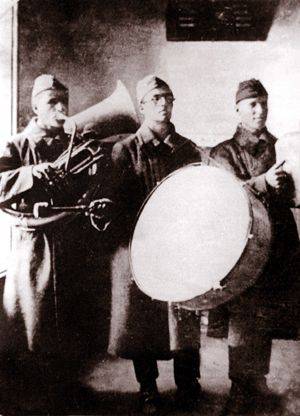 One of the memorable events was a concert hosted by the citizens of Leningrad in the old house of Chirkovsky on the cathedral square. The evening was sunny and warm, the windows in the house were left open. The hall was quickly filled, the latecomers were under the windows. When the cadets of the school took the stage, they occupied it all - the choir turned out to be so huge. Timpani struck and the cadets sang: "Get up, the country is huge ...". The whole hall then got up and sang along with the choir. There were people who had already survived the retreat and bombing on the roads, and those who came from the front of the funeral. And they and others sang and, not ashamed of tears, wept, and behind the windows on both sides of the house people stood and sang and cried too ...
One of the memorable events was a concert hosted by the citizens of Leningrad in the old house of Chirkovsky on the cathedral square. The evening was sunny and warm, the windows in the house were left open. The hall was quickly filled, the latecomers were under the windows. When the cadets of the school took the stage, they occupied it all - the choir turned out to be so huge. Timpani struck and the cadets sang: "Get up, the country is huge ...". The whole hall then got up and sang along with the choir. There were people who had already survived the retreat and bombing on the roads, and those who came from the front of the funeral. And they and others sang and, not ashamed of tears, wept, and behind the windows on both sides of the house people stood and sang and cried too ...And the last choir sang the number “The bell is ringing monotonously ...”, a song that does not say a word about the war, but only the dusty road, the driver, the Siberian expanses and ... the Russian sorrow. Nadezhda Kablukova suddenly thought that there was nothing - neither the Germans, nor the burned cities, nor the war, but only life, homeland, love and sadness. So, still somehow get settled.
The last ship to Birsk arrived a large batch of children and teenagers from somewhere in the south. They were accompanied by the head of the Ufa NKVD.
... It turned out that the pass to the name of Kablukova in the Police House has already been discharged. A man in a commanding uniform sat in a large office without plates. Nadezhda saw broad shoulders, a big head, but due to the fact that the lamp was looking in her direction, she could not make out faces.
The first question is whether her school work suits her (Nadezhda is a teacher in the village of Ponomarevka near Birsk).
- Yes, yes, work, a team of teachers - everything is normal. It is difficult with the road, but now it is difficult for everyone ... - she said quickly, as if out of breath and hurrying, justifying herself in advance and trying to encourage herself.
The man sitting opposite her was looking at her carefully. After thinking, took out the paper, photos, began to tell.
- An orphanage was evacuated to Birsk on a steamer. These are orphans of the executed Spanish communists. Before the war, the orphanage was in Leningrad, in July it was taken to Rostov-on-Don, from there to us. With a delay we start the school year. We offer you to become a teacher and tutor in the fifth to seventh grades. Conditions are better than in Ponomarevka, duty is charged separately. Unusual children - they saw both torture and harassment of Francoists over their parents, all atrocities, including executions, took place before their eyes ...
What did Hope know about Spain? This nation is far, alien, Russian for all history they did not trade with him, did not fight, did not learn from him, and did not teach him. The culture of the European south - ancient Rome and the Italian Renaissance - has overshadowed all of Spain from Russia with its literature, painting, music, turbulent history and outstanding people. In the prewar years, it was Spain that rose to its full height before the world — the first to accept the challenge of fascism, refusing to kneel before Hitler and Mussolini.
Already sitting at home and turning over the conversation in her mind, she threw up her hands - she doesn’t know Spanish! How to work?
The next day, after visiting the boarding school, Nadezhda found out that the nightly alarms were in vain - the children speak Russian fluently, and some even compose poems in Russian. The only thing that amazed her from the very beginning, and she never got used to it, was the sensitive attention of the Spaniards to the shades of meanings that they caught in the Russian language and which she, the teacher of the Russian language, did not feel in her. On the first day of work, the children asked why the word “kvass” is written together, and “to you” - separately? They looked at the teacher by the name of Rtishchev with naive amazement - “your name is Rtishcheva, and why do you have a small mouth ?!”
At the interview Spaniard Louise, the orphanage political officer, spoke in detail about the fate of the students. Nadezhda learned that from the number of children who had fled from Franco-Spanish Spain in the pre-war years, by the forty-first year no more than half had survived. Some died on the way to a new home, others died in Leningrad after blockade shocks, and some just quietly died away ...
In the orphanage Nadezhda taught Russian language and geography, but a lot of time was on duty. She read books aloud, retold novels and novels read once, told, and often made up stories from her life. The Spaniards liked Russian fairytales unfamiliar to them, especially Pushkin’s fairy tales in verse.
She once read Pushkin's Golden Fish. The children listened, leaning against each other, with their eyes rounded in surprise, resented a grumpy woman and threw angry glances when the old woman demanded more and more new wealth from the fish. When the tale reached the middle, the bell rang - a break. What started! From their pockets, the children took castanets, began to beat some unfamiliar rhythms with their feet - they danced their freakish hurricane dance without music. Then one of the older girls shouted loudly, "Kai Roi!", Which meant a call for calm and order. They all instantly sat down in their former places and began to look expectantly, demanding a continuation.
The break had to be canceled, the fairy tale continued. The end satisfied her all: the evil was left with nothing, the fish still punished the old woman! Saying goodbye to the children, Nadezhda invited them to draw the heroes of Pushkin's fairy tale.
On the next duty in front of her laid out a mountain of watercolor and pencil drawings. The heroes of the tale looked unusual for the Russian eyes: a grandfather with a twisted mustache in a wide-brimmed hat and a sword looked like the hero of Cervantes, the grandmother in Spanish clothing with a huge hairpin in his hair. A tub was drawn instead of a trough, frigates sailed under white sails to the sea, and a castle with towers and a suspension bridge is depicted instead of a house.
When Nadezhda told the Spaniards a fairy tale about the Kolobok, they liked everything, except one thing, they could not understand what the Kolobok looked like. Then Nadezhda asked the Spaniard cook, instead of the usual buns, to bake balls with eyes from raisins, with a smiling mouth and nose from specially baked dough. Over the evening tea, the Spaniards saw a mountain of smiling koloboks on the table. Arriving home, Nadezhda found cottage cheese wrapped in a rag, a large piece of bluish sugar, a cube of butter, a few candies and a bun in her bag. In a separate piece of paper lay a purple onion — the orphanage “morning vitamin.”
She twisted an onion in her hands with a kind of woeful feeling - in a nearby children's home she could only dream of such a bulb. Our children on beggarly rations, while the little Spaniards are so generously and thoughtfully provided ... She did not touch the food. The next morning, carried everything found in the office of the Spanish political officer.
- I know everything. And this gift is better to accept, - smiled Louise.
And once a boy of thirteen by the name of Salvador Valia suddenly wanted to tell Hope about his last days in his homeland. He surprised everyone with his actions - he could go up to the girl he liked, grab her ink bottle and, with his head thrown back, drink all its contents in one gulp. After that, Salvador started up a thin ink fountain, and then, wiping his lips with a blotter, he calmly and proudly left.
Hope was not ready for a serious conversation. To get out of confusion, she replied that today she has a different duty plan, and somehow next time she will be able to talk about everything.
“You, Comrade Nadezhda, do not worry,” Salvador assured her, “we will not cry, our parents did not order, otherwise it will be hard for them there,” and he pointed to the sky with his eyes.
Spanish teachers advised to listen to the children, and one evening while on duty they told in details about the flight from their homeland. They recalled how at night, fearing to give themselves away with the noise of engines, they moved from boats to rowing boats and sailing barges. A storm raged in the Bay of Biscay. When the rowing boats, overturned by the waves, began to sink, the children saw by the light of the lightning brothers, sisters and friends dying in the sea, but could not help.
Only Hope cried. The children approached her, stroked her arms and shoulders, but their eyes were dry. It made her even harder.
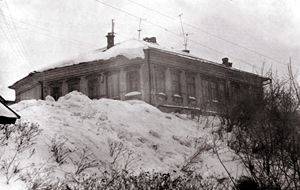 Winter came with frost, blizzard and heavy snow. A skating rink was arranged in the courtyard, sleds were adjusted, skates were sharpened. They made ice-boats - they took baskets of braids, large pans full of holes or basins, tied them with rags mixed with straw and doused with water. Captured by frost, they turned into "wire rod", which the children loved even more than the sled. Nadezhda brought from the house her old baby “pail” - a wide, smoothly planed plank, to the back of which a little chair was nailed. The front part of the board was designed in such a way that it resembled the nose of the rook — this made it easy to move through the snow. “Lodeyka” everyone liked, they skated on it one by one.
Winter came with frost, blizzard and heavy snow. A skating rink was arranged in the courtyard, sleds were adjusted, skates were sharpened. They made ice-boats - they took baskets of braids, large pans full of holes or basins, tied them with rags mixed with straw and doused with water. Captured by frost, they turned into "wire rod", which the children loved even more than the sled. Nadezhda brought from the house her old baby “pail” - a wide, smoothly planed plank, to the back of which a little chair was nailed. The front part of the board was designed in such a way that it resembled the nose of the rook — this made it easy to move through the snow. “Lodeyka” everyone liked, they skated on it one by one.Soon an event occurred ... During the walk, the girl Elsa Labarto and Philomena Martinez, where it was unknown, found a newspaper with pictures of the executed Zoya Kosmodemyanskaya - the girl was lying half naked in the snow with a noose around her neck. In the evening, hysterics and fainting began throughout the orphanage. After this incident, Nadezhda stopped condemning the director and political officer Louise, who had cut off the radio when the Soviet Information Bureau broadcast messages about the Nazi atrocities in the occupied territories. These reports reminded the orphans too much of the recent events of their own lives.
Nadezhda went to work in the morning after dark, when the lights in the windows were not yet burning, walked two kilometers across the field, feeling for the marked road with a staff that she carried with her for the whole winter. Landmark for her was a big bag of straw.
Once in January, Nadezhda fell into a blizzard and went to an abandoned farm on the outskirts of the city. She came back and began to look for the road again, afraid to be late to the beginning of the lessons, but soon she was tired. The clothes froze, the snow stuffed in felt boots froze. Forces left. Through the snow, she again saw the baggage of straw. Overcame myself, walked on a snowy arable land. She came to the orphanage by the middle of the second lesson. She was stripped, put on a warm stove in the lodge, and in the afternoon she was sent home on a cart. Soon her temperature rose.
... She woke up, as if by shock. In the gray twilight the room seemed unfamiliar and strange. Above the bed with lush pillows hung a carpet of red mushrooms and a yellow fox, smaller than mushrooms. A bottle with a yellow mixture and a glass with a teaspoon — also disproportionately large — stood in the chair by the bed. A chest of drawers at the opposite wall, on the contrary, could be seen exactly from a distance, like through binoculars. Nadezhda saw a gypsum cat on a dresser lifting its back leg and scratching a habitual cat gesture behind its ear, waved its tail and again froze in an unnatural petrified pose. This surprised her.
- Wow! - whispered Hope.
Twilight moved in the corners with small worms. Nadezhda listened to their quiet rustling, not understanding whether it was morning or evening. Closing her eyes, she felt the bed swinging slowly. Consciousness dimmed.
It is unclear how much time has passed when she opened her eyes again. Turning to the window, she cried out in surprise. Behind the glass, someone stood and looked at her frowningly. With the smallest details, she saw how the dark figure outside the window raised her hands, pressed on the frame and the glass fell apart, falling on the blanket. The dark silhouette stumbled into the room, leaned on the window sill so that the fragments crunched under the elbows. She clearly saw broad shoulders, a large head, similar to a dog and even a tuft of wool, protruding above the ear, but she could not make out her face, some sort of gray was growing gray instead. In the room, flapping the curtain, the wind walked, snowflakes whirled. She realized that delirious.
When she opened her eyes again, it was quite late. The moon was shining into the room, there was no one outside the window, the tulle curtain hung in the same place. Creaking in on the door, Louise entered, zampolit. Nadezhda watched her through the lowered eyelashes, not showing that she woke up. Louise moved the chair to the bed, sat down, and began to speak quickly, as if rejoicing in something. Hope was tired and silent, blood pounding in her temples. Louise touched Hope with her hand. The hand was icy and heavy.
“Do not touch with your hands, your fingers are cold,” Hope shouted at her angrily. - You horror as much chatting. Leave me alone!
“We need to bring a towel and vinegar,” Louise told someone standing in the doorway. Nadezhda wanted to say that she didn’t need a towel, vinegar, or a political officer, in general, no one was needed, but then she forgot about all this. I fell asleep. She began to recover.
Birsk City Party Committee demanded that the Spanish employees of the orphanage and high school students receive political information daily about events in the Soviet Union and abroad. Responsible appointed Hope, non-partisanship is not taken into account - "we trust you." There was nothing left to do but sign up for political literacy courses — to be the most politically-savvy in order to speak with foreigners with good reason.
In the large hall of the city club were ordinary school desks. In addition to young people, older people were also sitting behind them: a war veteran who walked on crutches, an inhospitable, sickly woman in pince-nez from among evacuees, local factory workers. Listeners were given lectures on surplus value, the dictatorship of the proletariat, the great utopians, the forerunners of Marxism, and the "modern moment" - the situation on the fronts.
In the classroom, Nadezhda first heard about socialism and communism not slogans, but rather well-reasoned lectures, and was truly shocked by how many people wanted to make their lives more honest and fair. She discovered the world of brave greedy thinking and felt that she was also from this human breed. For the first time I wondered - would you not become a member of the CPSU (b)? Why not?! Although, of course, we still have to work on it for a long time!
The most interesting course, historical, was read by a Moscow teacher - a tall, heavy, constantly coughing Denis Grigorievich. He wore black gloves that he never took off because of the eczema of his hands. The gloves made Denis Grigorievich look like a theatrical undertaker or a Catholic pastor. He suffered from shortness of breath, and while talking, he covered his eyes theatrically with his hand, as if from a bright light. Everyone knew - he had to sit in prisons, live in rotten dead places, maybe even work at the mine. I remembered the old convict song “Tortured by heavy bondage ...”, the stories of the Wanderers “Vladimirka” and “Prival prisoners” came to life before my eyes.
Instead of one and a half, Denis Grigorievich gave a lecture for about three hours. With a domineering hand he moved apart the horizons, and much of what seemed quite vague acquired clear outlines for Nadezhda Kablukova. Denis Grigorievich spoke unusually about communism, socialism, the dictatorship of the proletariat, about other things, like a hundred times already chewed, without fail arguing with someone invisible.
“... They claim often and stubbornly, as if socialism is impersonal,” he began, as always, from the middle, kneading and clearing his own thoughts with a cough. - No, not true! It comes not from pedantry, not from the standard, in general - not from banality. He goes all the way from a search that poor souls don’t do! By thought, Russian socialism has never been poor and no one even tried to suggest any ideas for replacing it with ideas in Russia! ..
At first, about twenty people signed up for the courses of political literacy, the next lesson came three times more - the whole Birsk spoke about how exciting the classes were conducted. They said that, unlike ordinary circles, the whole history of the revolutionary movement, starting from Spartacus and the early Christian communards, would be read here. Carried away, Denis Grigorievich began to behave - well, just like in an underground working circle somewhere behind the Narva Gate. He jumped up from his seat and, holding a glass of cold tea in one hand, waved it in such a way that tea was sometimes splashed on the heads of the listeners.
“Not far, not far away is the great holiday of the working people of the whole world,” Denis Grigorievich rallied, coughing the more the speech became more fervent, “you will see with your own eyes the day when the victory of human genius will lead nations to universal equality and fraternity!” This is not an empty phrase - “the human race will rise up with the Internationale!”. Listen carefully! In the family of nations should not be stepchildren, we are all workers of the world, the great army of labor ...
What then? Denis Grigorievich was offered to look into the Militia House on Oktyabrskaya Street during class to clarify some life circumstances. And that's it, he was gone. Where are you gone? Unknown. Someone said that Denis Grigorievich was invited to Belebey to teach at the Military-Political Academy, someone saw him in Ufa. Instead of Denis Grigorievich, a new lecturer appeared, who invited the students of political letters to focus on independent work with newspapers and the study of military reports. Russian Campanella disappeared from the life of Nadezhda Kablukova and, unfortunately, forever.
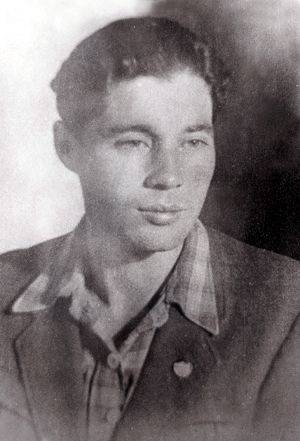
Salvador Valia
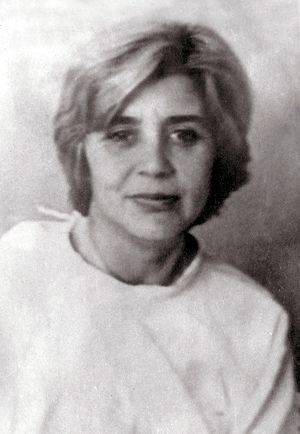
Pooh pakita
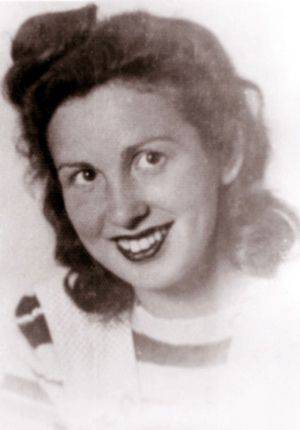
Anna Sangos
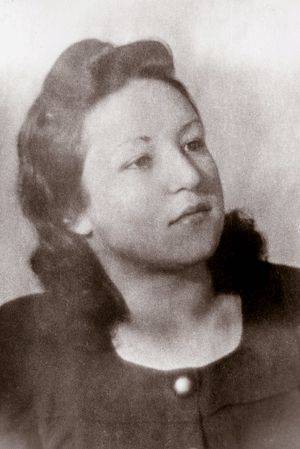
Elsa labarto
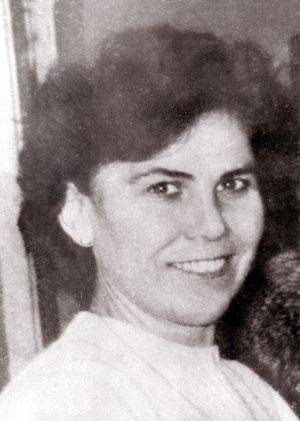
Philomena Martinez
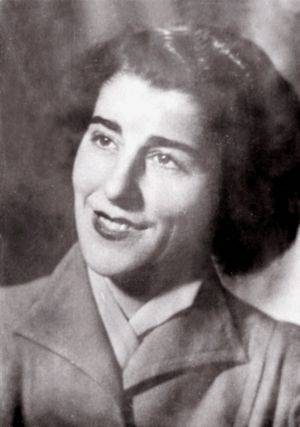
Frango Murga Maria Lunza
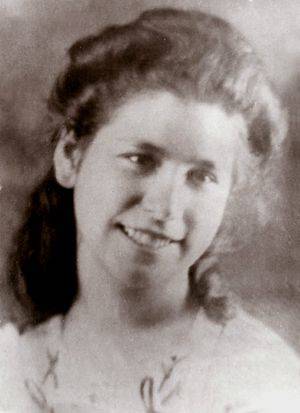
Carmina Oreksilo
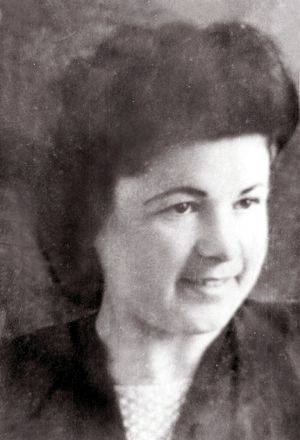
Covadonga Gutieros
The political information with which Nadezhda spoke to Spanish educators consisted of a retelling of Pravda materials and a review of Red Bashkiria. She seemed to be responsible to the Spaniards for all the events in the life of the country - at the front and in the rear. At the same time, all the achievements were her personal - she now lived by this.
The bright victory in the forty-first year near Moscow diminished the German offensive in the summer of next year, when they occupied the North Caucasus and rushed to the Volga. The gloom covered Hope, it seemed to her that the enemy could not be stopped, and she, speaking to the Spaniards, only hides a terrible inevitability. In those days, on political literacy courses, she spoke about the order of the Supreme Commander No. 227. “Not one step back!” - the order obliged to stand until the end on every square meter of Soviet land. Oh, the Spaniards understood that perfectly!
The most significant event in the life of Hope was the offensive of the Red Army near Stalingrad, which ended with the defeat of the Nazis. After the three hundred thousandth group was destroyed and over one hundred thousand Germans were captured, led by Field Marshal Paulus, it became clear that their attack had failed. Simultaneously with the victory at Stalingrad, the fascists were driven from the North Caucasus. Do I need to explain how I got stronger, what persuasive force filled the voice of Nadezhda Kablukova ?!
Nadezhda was now conducting political information, in fact, in euphoria — her voice was trembling and now gurgling. She was pushing the horizons and opening up the pictures: socialism, the work of Lenin-Stalin, the courage of our soldiers conquer! Hopefully, two times as an experienced political worker, I sharila without training in a fresh newspaper - she even liked such an impromptu! And on that May day of 1943 of the year, she revealed a fresh “Truth”, snatched out the headline, began to read, but ... could not get into the correct tone. It was about the meeting of the executive committee of the Communist International, held in Kuibyshev, where the Comintern decided to dissolve! Then — an official communique went on — while reading it, Nadezhda came to her senses: it is hard to believe that the Third International, which made the bourgeoisie of the whole world tremble, no longer exists.
Only she thought about it, this thought reached everyone. The Spanish educators at once jumped up from their seats and began to shout something in her face with hatred. Hope flashed the thought - now they will start beating. Always restrained in actions and words, the political officer Louise also shouted something in Spanish and then ran out of the room. Doors slammed throughout the building, then everything was quiet. In the corridor, Nadezhda met Olga Avdeeva, the head teacher.
“You will be replaced on duty today, there will be no classes,” she said in an official dry voice, looking somewhere past. - You can be free.
Ask questions Hope considered superfluous. Just came home, the phone rang - they offered to immediately come to the Police House.
In a familiar office with a portrait of Dzerzhinsky, I saw Spanish tutors who had recently listened to political information. Now they sat nasuplennye row against the wall. The owner of the office came out from the table, greeted Nadezhda by the hand, sat her down next to him. Then he paused for a long time, and when the silence began to look quite strange, he said that the Spanish comrades present here offered comrade Nadezhda apologies for tactless behavior.
“An error has occurred, but everything has been clarified,” the security officer continued. - The misunderstanding resolved.
With these words of his, the Spaniards began to bow, put their hands to their chests, and then walked out of the office in a single file. When the door closed, the security officer said that they had just said that Nadezhda was an enemy, moaning the Comintern as an organization capable of capitulation to fascism and reactionary governments. They demanded arrest and prosecution. The Chekist, for his part, showed the Spaniards the documents he had received the day before about the dissolution of the Comintern, about going underground all his leadership, and assured the Spaniards that all this, although sad, was true.
Already at the door, seeing off Nadezhda, remarked:
- Prior to this, the Spanish orphanages created in our Union were assisted by the Comintern. Now much is in question.
The situation cleared up. Nadezhda Kablukova continued to work in a Spanish orphanage almost until the very end of the war, but she refused to carry out political information, as the director of the orphanage, Spaniard, political officer and senior instructor of the Birsk city committee insisted on ...
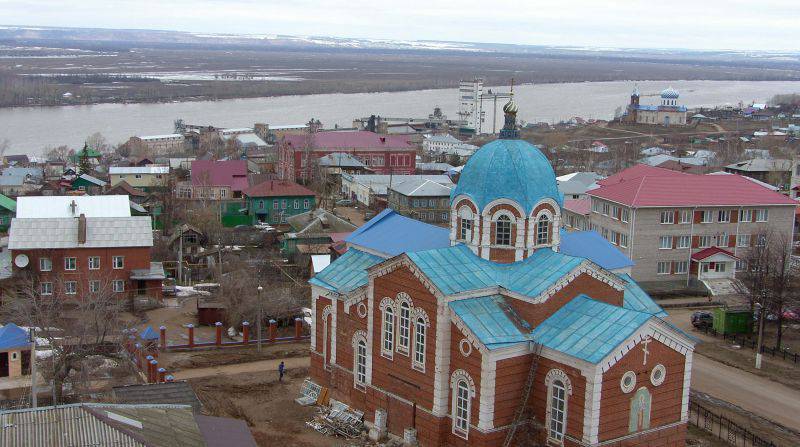
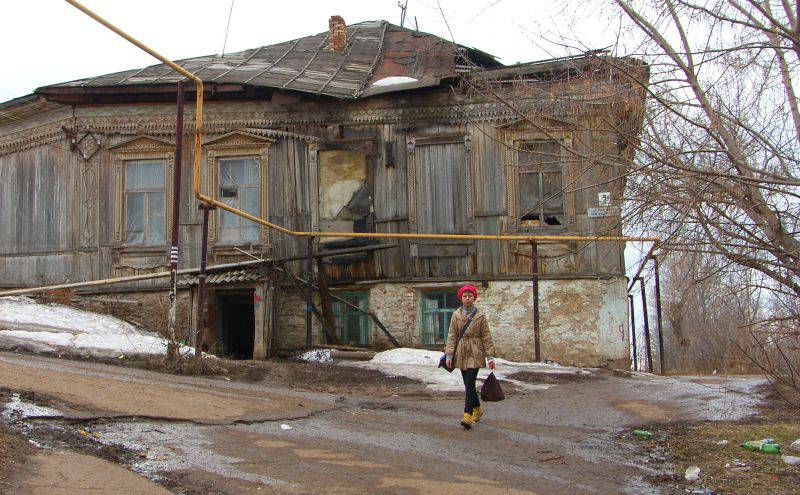
Information